Early each morning a father braves the traffic riding his bicycle to his son’s preschool and then to work. It is an old bicycle model and he’s mended one of the tires but it transports both of them and that’s enough. He’s made a seat for his boy, right behind his own. His son has to go to school so that he’ll be ready for big school, when time will come. He’ll probably have to adjust the size of the child seat by then, but that’s something to worry about later. Today’s rainy; the roads are wet and the drivers impatient.
(November 2022 update: I still see them each morning, now walking to school, hand in hand).
Early each morning a man runs 10km to get to work. He chose not to take the bus to save extra money and the work he’d found, although far, is good work and it pays for his children’s school, books, uniform and food. He knows the road off by heart and some of the drivers know him, they wave and give him priority. Just the 10km he has to run back at the end of the day is a bit much, but he’s got no choice.
It is determination that’s pushing these men, and many others, forward. The willpower to get the work done, to get that pay cheque, to pay those school fees, because school is important. They want their children to have the chance they never had. But is determination enough without an opportunity? Is school attendance that opportunity? And, above all, is it enough?
Most of us take reading, the simple act of understanding and subconsciously analyzing a text and taking enjoyment from it, for granted. We’ve been brought up in a culture of reading without even realizing it. Books, either electronic or hard copies, are within our reach, literally. What happens if the access to books is denied to a child? If the school or township is not having a library and even school books are scarce – because of financial restrictions or bad management?
Reading is proved to be linked to academic achievement, emotional intelligence and self-esteem.
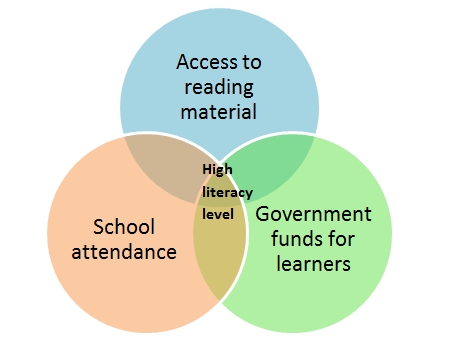
Literacy level in South Africa
The Data Portal Index Mundi presents the following rates for Literacy (%) in South Africa (adults 15 years and older):

“The Annual National Assessment (ANA) test results serve as a proxy for the quality of education in South Africa. The purpose of the Diagnostic Report is to provide detailed evidence of the knowledge and skills that the analysis shows learners were able or not able to demonstrate in the ANA tests.” (Department of Basic Education). The ANA is administered in Language and Mathematics on learners in Grades 1-6 and 9 in both public and independent schools and it was launched in 2011.The standards used by South Africa in assessing its literacy levels are the self-reported ability to read and write short sentences. The 2012 General Household Survey (GHS) conducted by Statistics South Africa (StatsSA) considers all South Africans age 15 and older with a Grade 7 or higher education qualification as literate. But are these numbers reflecting the reality of our country’s literacy level?
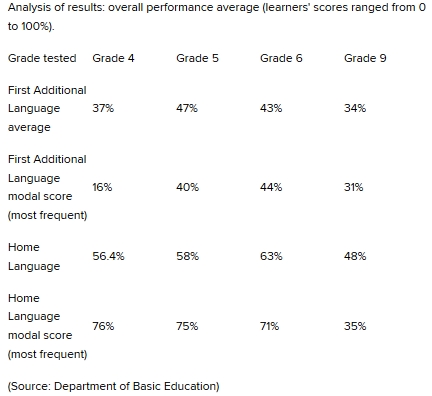
For a better idea of the real issues behind these numbers here are some sample questions and answers. Source: Annual National Assessment 2014, Department of Basic Education, Republic of South Africa.
Grade 4 – Detailed Analysis First Additional Language
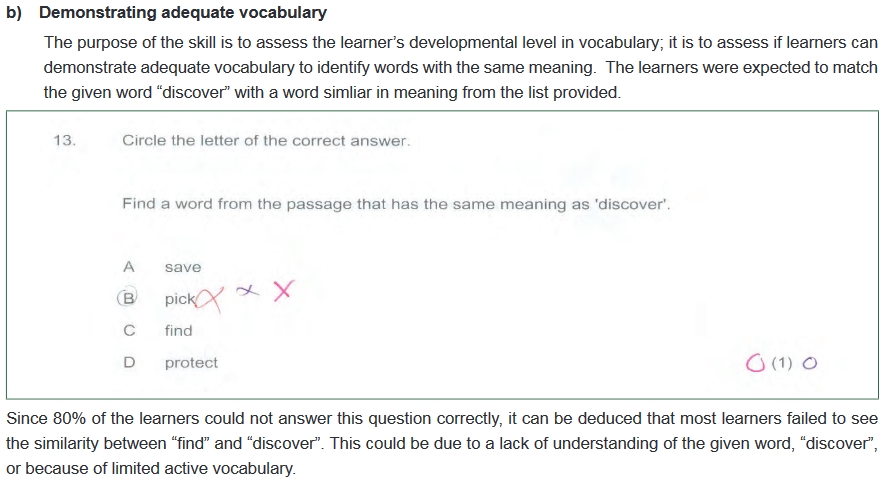
Grade 5 – Detailed Analysis First Additional Language
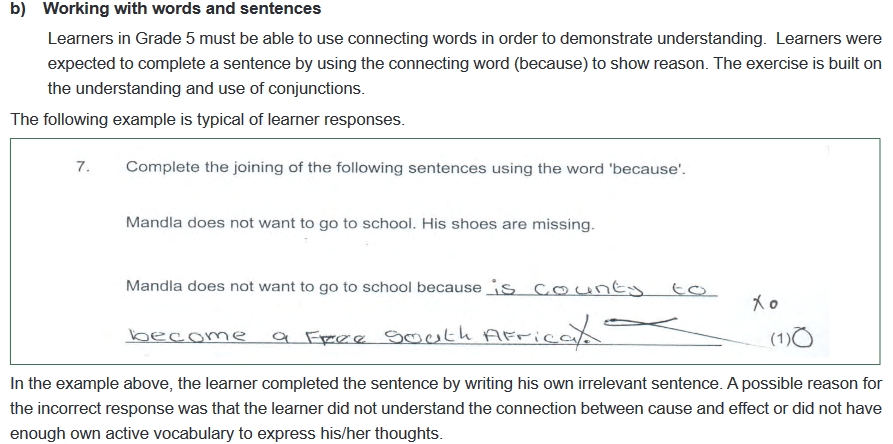
Grade 9 – Detailed Analysis First Additional Language
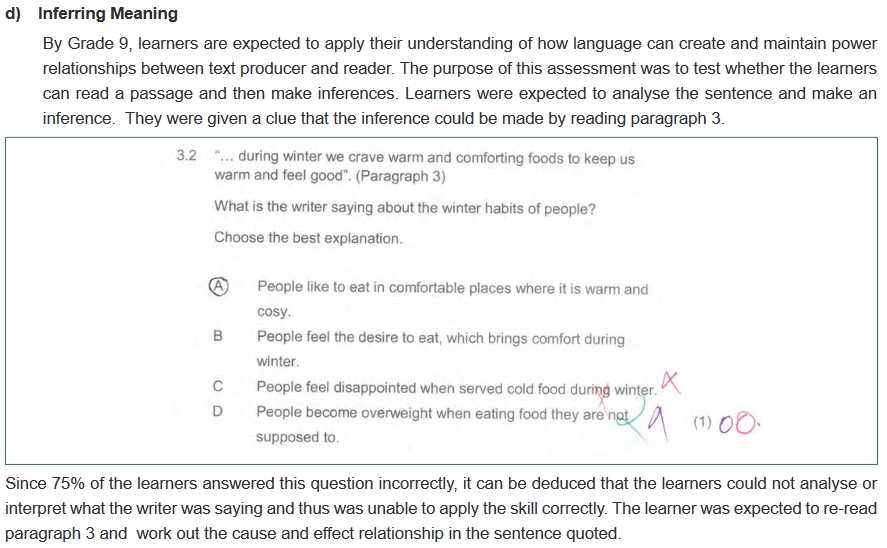
Grade 9 – Detailed Analysis Home Language
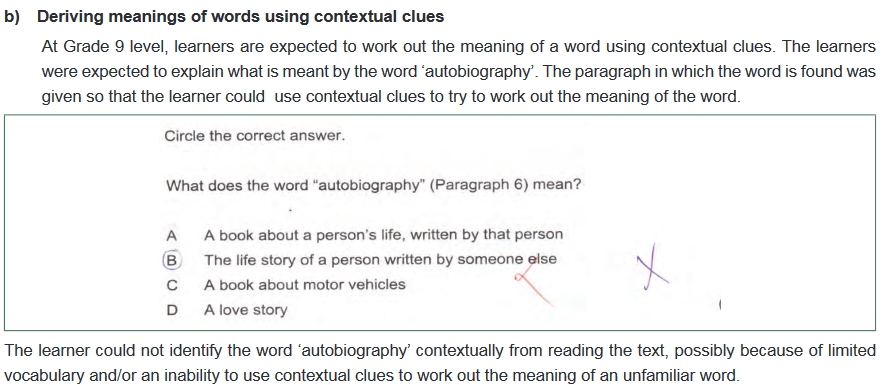
Grade 9 – Detailed Analysis Home Language, example two
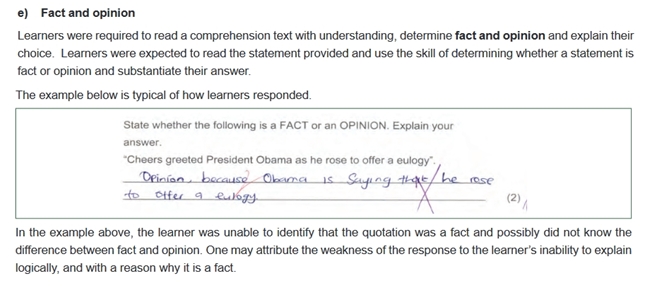
Access to reading material in South African schools
Learners in a primary school with and without a library fulfilling minimum standard which, according to the National Guidelines for School Library and Information Services, are access to at least one of the following: a central school library OR a mobile library OR classroom libraries:
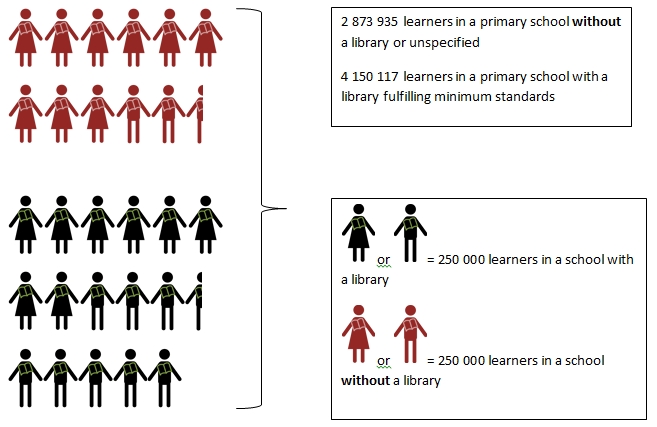
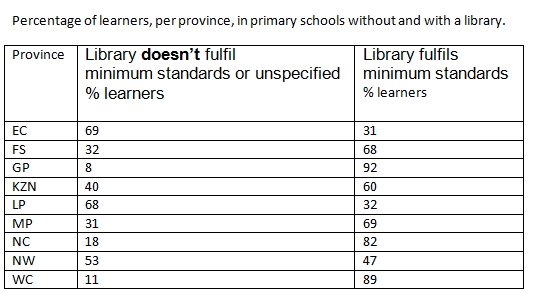
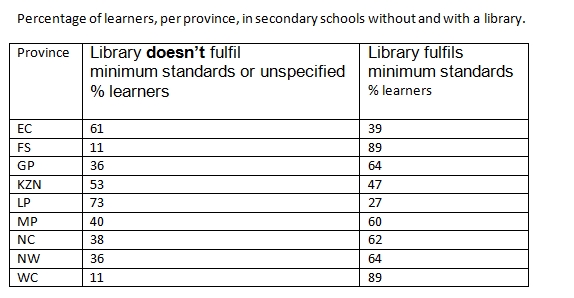
Government schools and the learner allocation received
The 2009 UNICEF report stated that 53% of SA learners were in non-fee schools. These schools are completely dependent on funds from the government. The funds are allocated per learner, depending on the poverty of the area around the school and are amended annually.
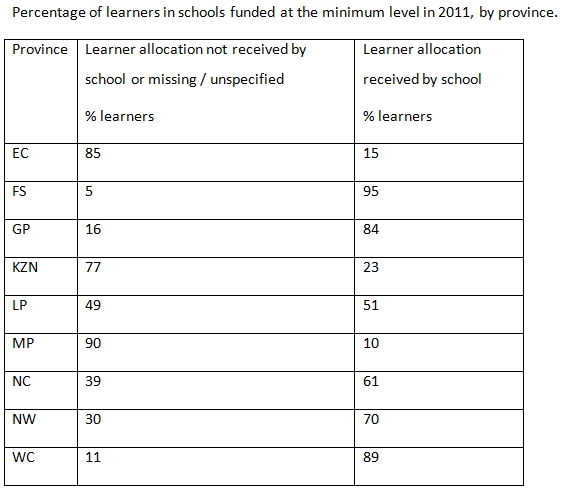
The percentage of learners funded at the minimum level is deeply concerning in Mpumalanga, Eastern Cape and KwaZulu-Natal where only 10%, 15% and 23% of learners, respectively, were funded at the minimum level.
School attendance
Percentage distribution of learners in ordinary schools, by phase, in 2011 (as provided by the Department of Education).
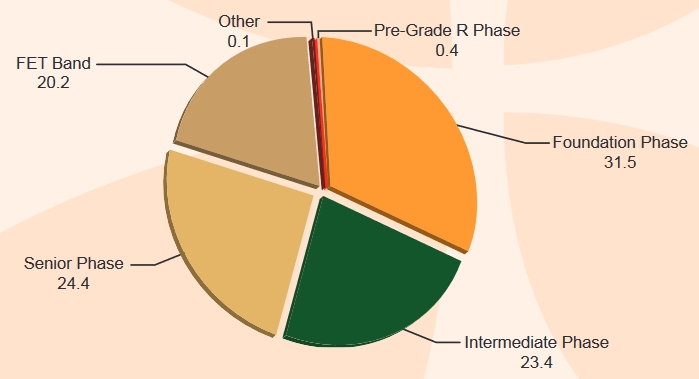
The government does not provide pre-Grade R programmes in schools. Moving up from Foundation Phase to Senior Phase the proportion of learners decreases.
In conclusion, the learner’s lack of access to reading materials due to chronic deficiency in library infrastructure is the biggest problem most government schools in South Africa face. It presents severe repercussions for the future of most children schooled as well as for the real level of literacy in South Africa for many years to come.
“Education is the most powerful weapon which you can use to change the world.” Nelson Mandela
Or South Africa, for the better.
This article was written for and published on the Huffington Post SA on 7 April 2017
You might also like to read:


